Inflation in the eurozone decelerated across the board in March, as per final data from Eurostat on Wednesday, strengthening anticipations of an interest rate reduction by the European Central Bank (ECB) in June, even as rising energy costs and a weak euro cloud the outlook.
Inflation in the 20 nations sharing the euro currency slowed to 2.4% last month from 2.6% in February, according to the European Union’s statistical agency, in line with a preliminary estimate released earlier this month.
Meanwhile, underlying price growth, which filters out volatile food and energy prices, dipped to 2.9% from 3.1%, despite services inflation holding steady at an uncomfortably high 4.0%.
Inflation has fallen quickly over the past year, opening the way for interest rate cuts starting in June, even if the next few months are likely to bring choppy price growth data and a drawn-out return to the 2% target.
The eurozone is facing opposing inflationary forces, which could keep the headline rate fluctuating around current levels over the coming months before dipping toward 2% in the autumn.
Factors pulling inflation down include the continued slowdown in wage growth, anemic demand given a near recessionary environment, tightening fiscal policy, cheap imports from China, and relatively low gas prices after a mild winter.
But rising oil prices and a weaker euro both put upward pressure on prices, while stubborn services costs raise the risk of underlying price growth getting stuck above target.
“The recent rise in commodity and energy prices will add to headline (inflation) in the coming months, with euro/dollar weakness sponsored by Fed-ECB policy divergence compounding the move,” TS Lombard said in a note.
“The euro area remains among the largest energy importers worldwide, with great sensitivity to energy prices.”
The euro has weakened around 4% against the dollar since the start of the year, and the movement has been exacerbated by expectations for slower rate cuts by the U.S. Federal Reserve (Fed), given sticky inflation.
But this is mostly a move in the dollar, not the euro, economists say, and the trade-weighted euro has weakened much less, muting the impact of exchange rate movements.
“For the time being, the weaker euro doesn’t look like the biggest concern for the ECB,” ING said in a note. “It is rather the surge in oil prices and a potentially further escalation of the conflicts in the Middle East that will give at least the ECB hawks some headaches.”
‘Not Fed-dependent’
Policymakers have so far said that the oil price and exchange rate moves are too small to fundamentally alter the inflation outlook but market expectations for ECB rate cuts continue to retreat.
Investors now see only 75 basis points of rate cuts this year, or two moves after June, a retreat compared to two months ago when between four and five cuts were seen.
ECB President Christine Lagarde said on Tuesday the bank would cut rates soon, barring any major surprises, and argued the impact of geopolitical events on commodity prices had not been very significant so far.
On the same day, top U.S. central bank officials, including Fed Chair Jerome Powell, backed away from providing guidance on when interest rates may be cut, saying that monetary policy needed to be restrictive for longer.
Official data last week showed consumer prices picked up again in the United States, with a 3.5% year-over-year increase recorded in March, dimming hopes for a rapid rate cut.
Lagarde suggested that “we are not Fed-dependent,” saying that the monetary authority could lower rates before a similar move by the American central bank.
But she also warned that the road to reaching 2% inflation would be “bumpy.”
Energy has been a big drag on inflation all year as high year-earlier figures get knocked from base figures, but this trend could reverse in the second half of the year if oil keeps going up.
Some argue, however, that the traditional link between oil and gas prices has been broken, so an oil price rise does not automatically lift natural gas prices and does not have the same upward impact on inflation as in the past.





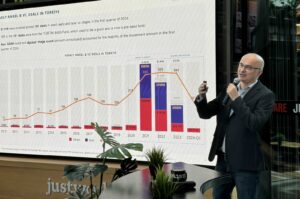



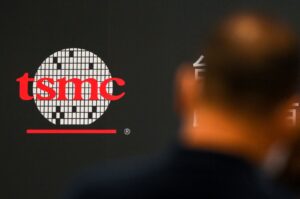




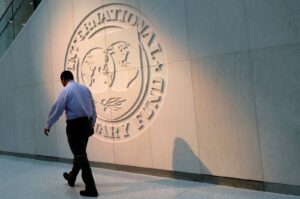






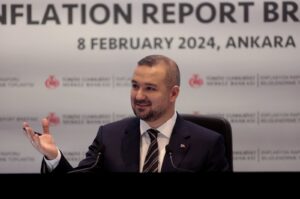









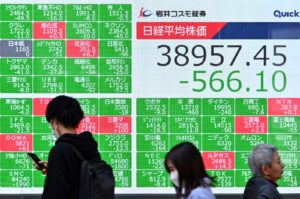



















Be First to Comment